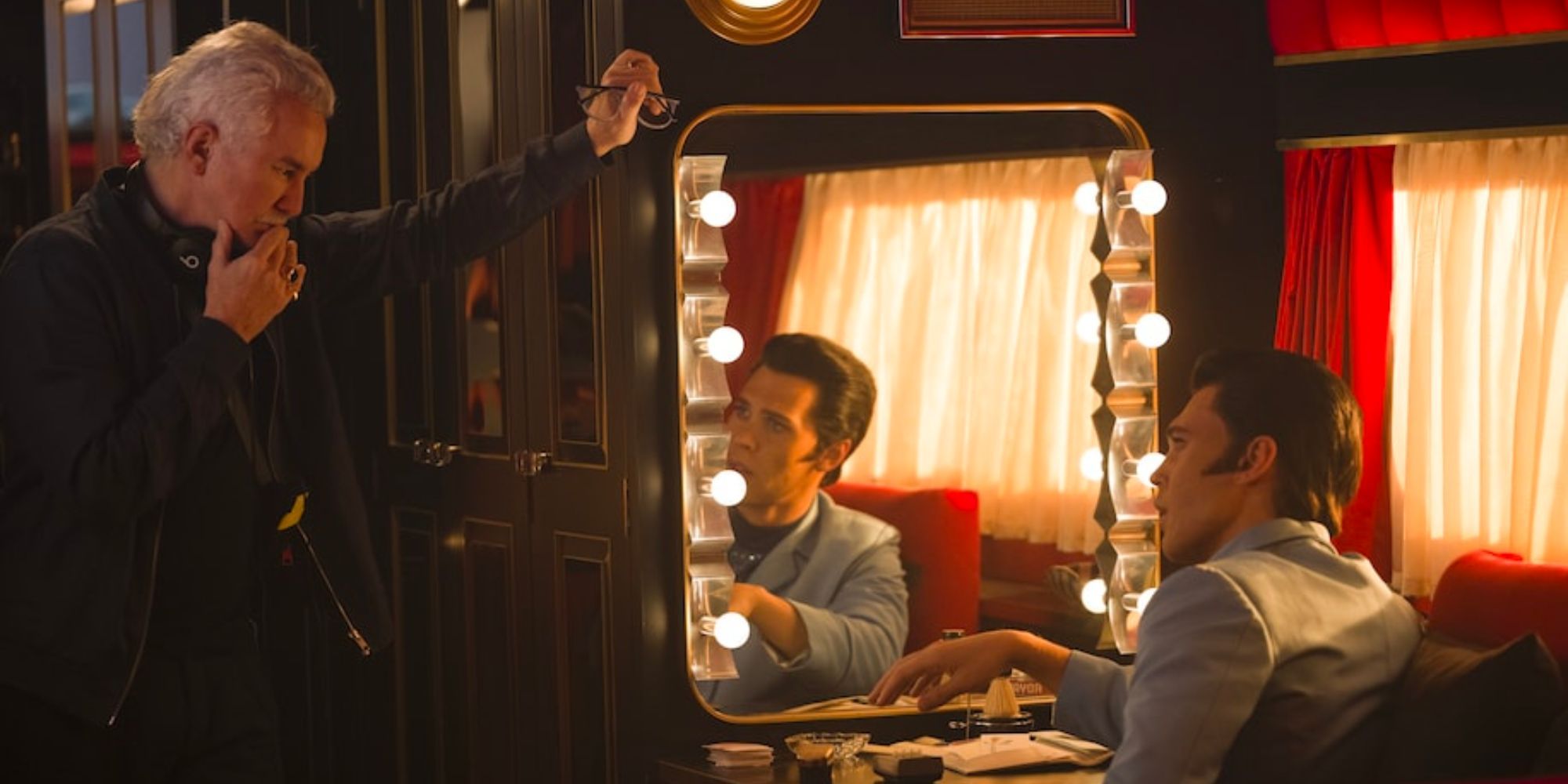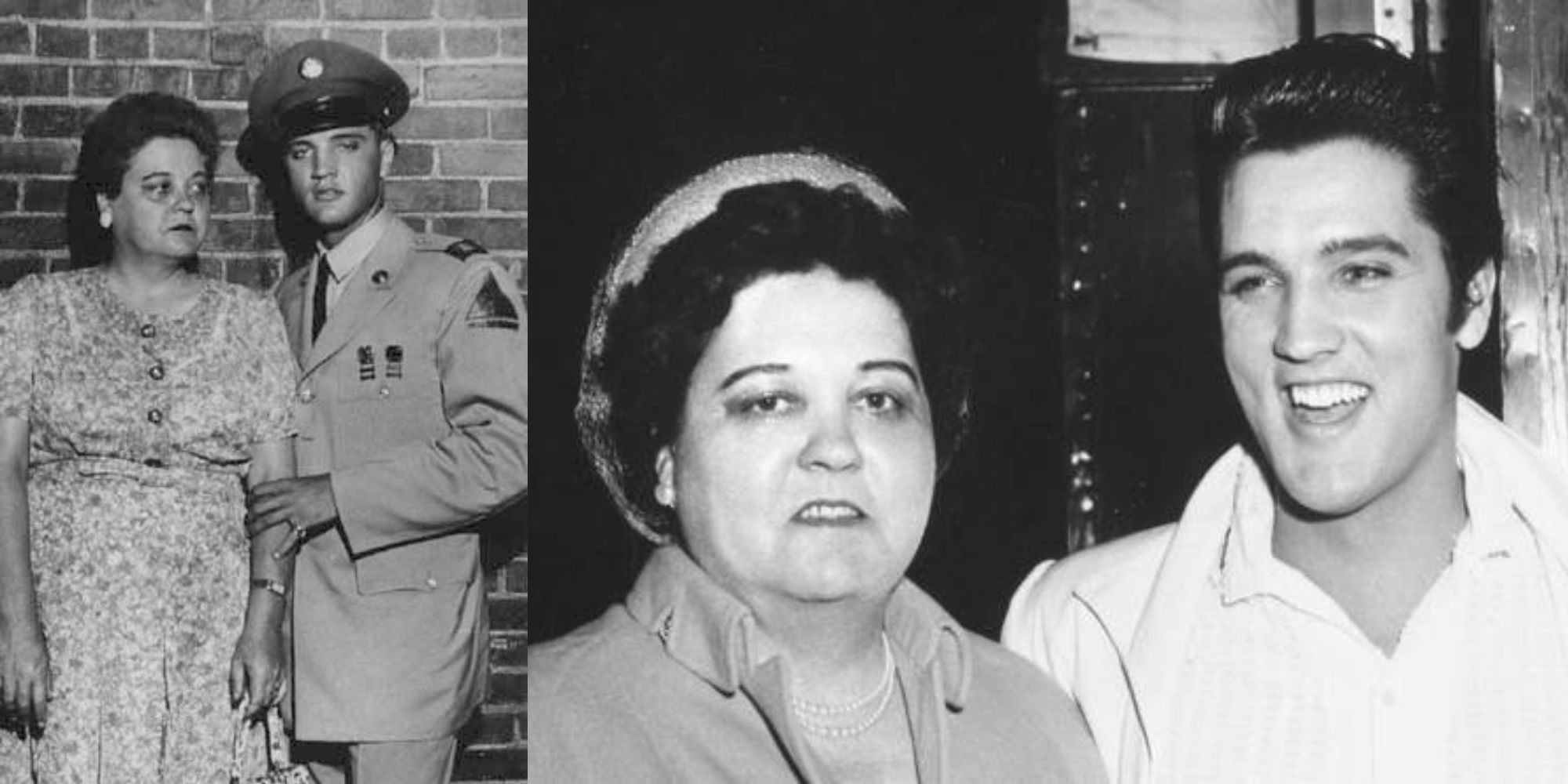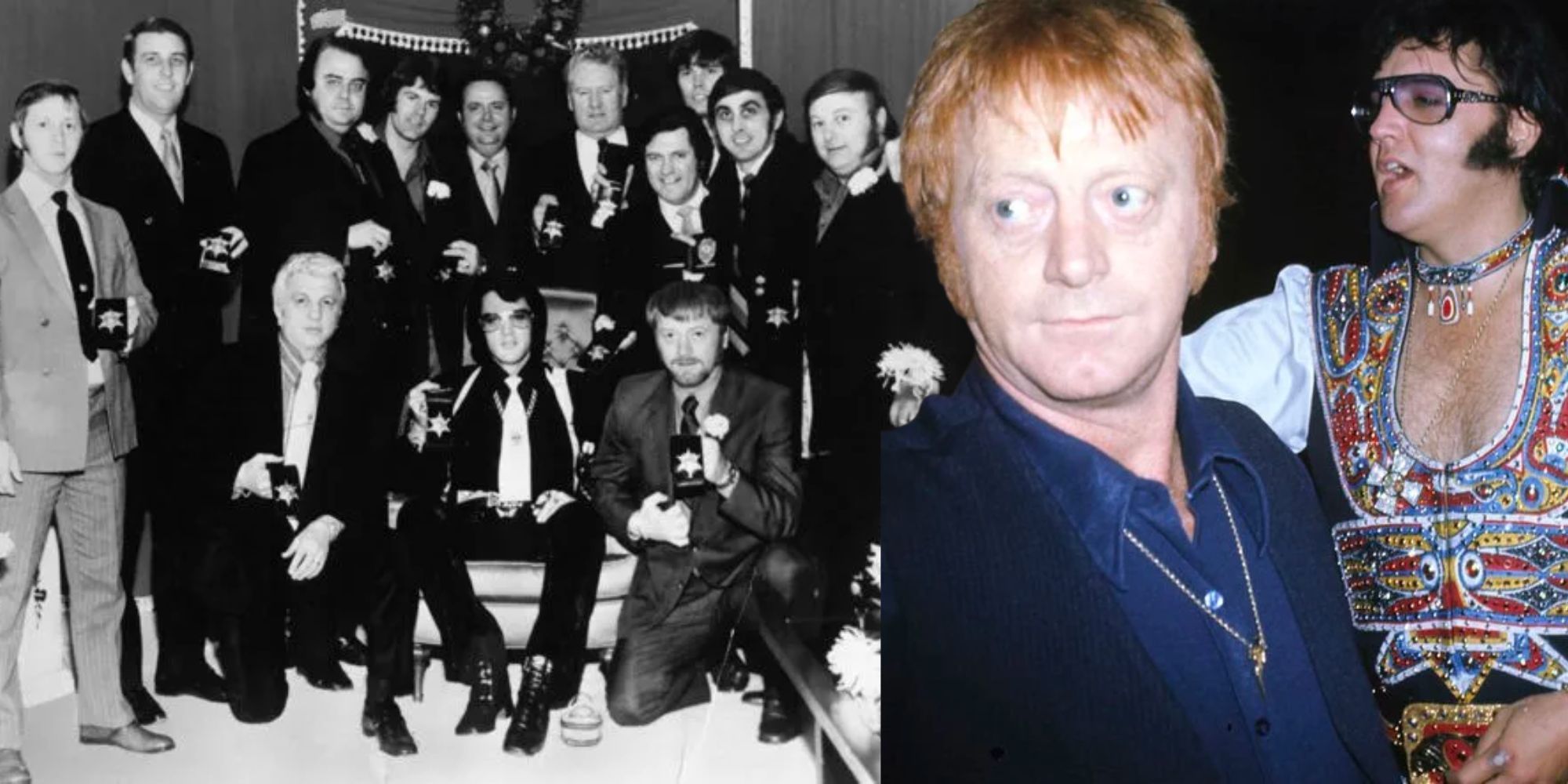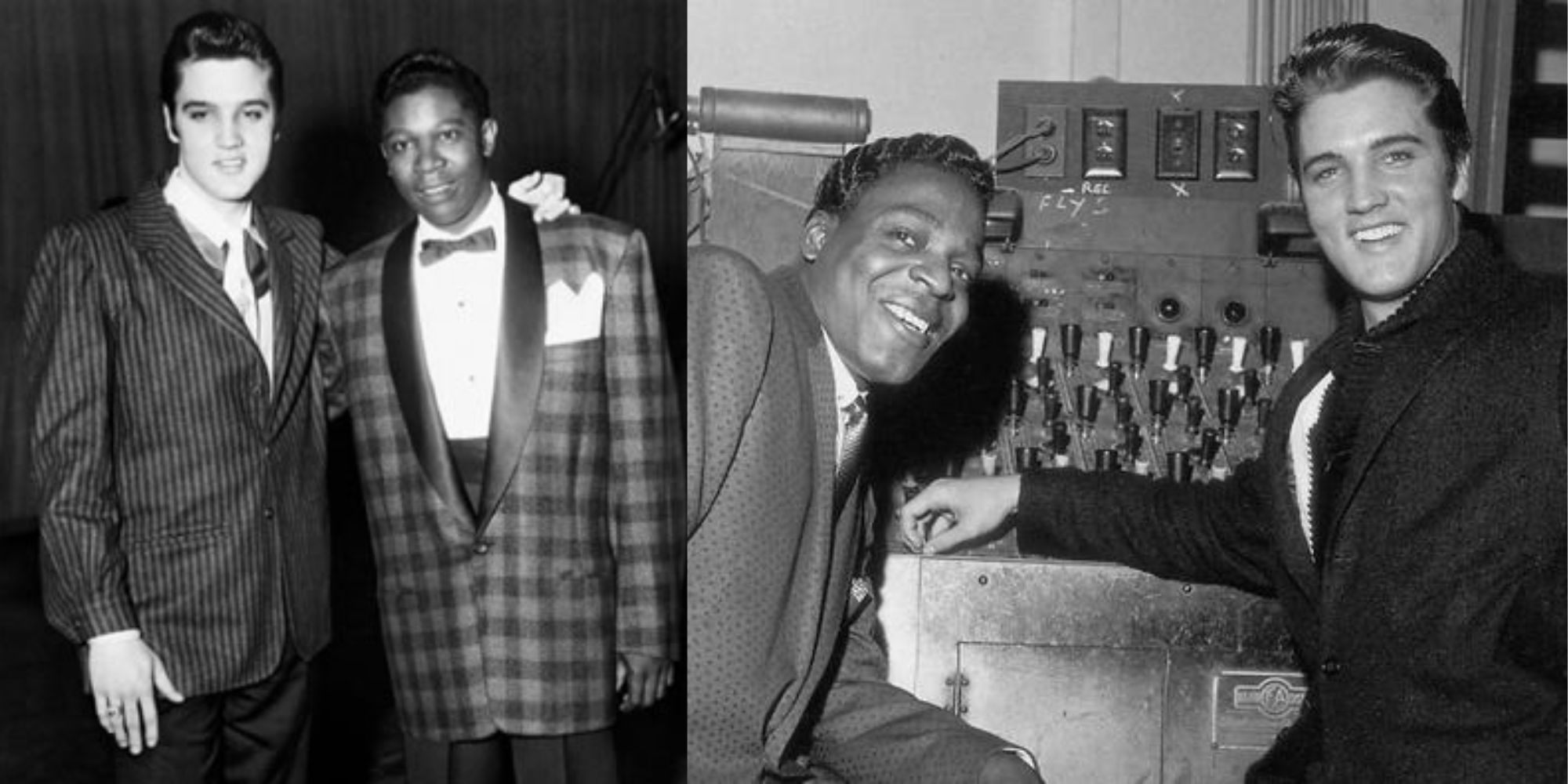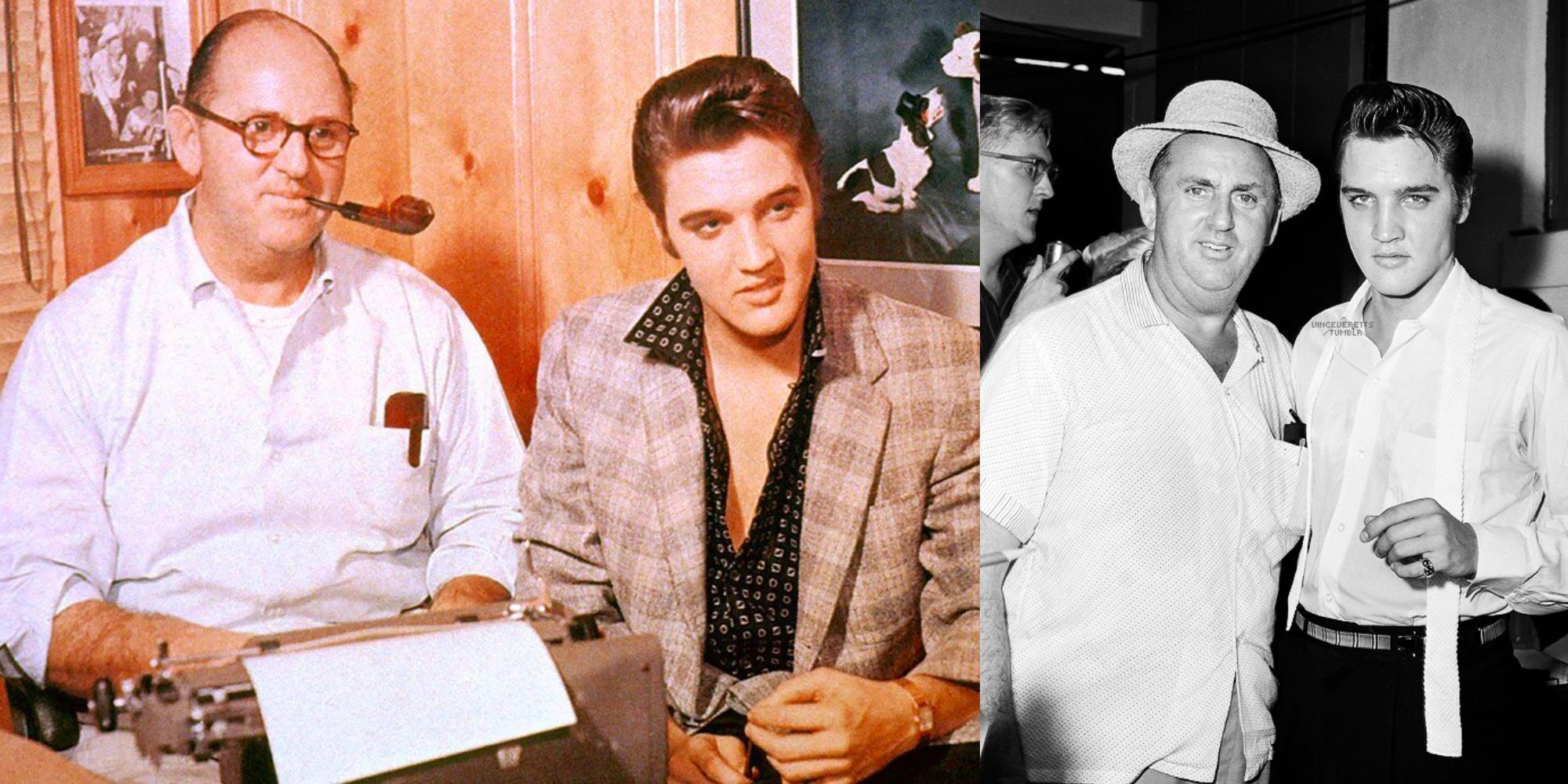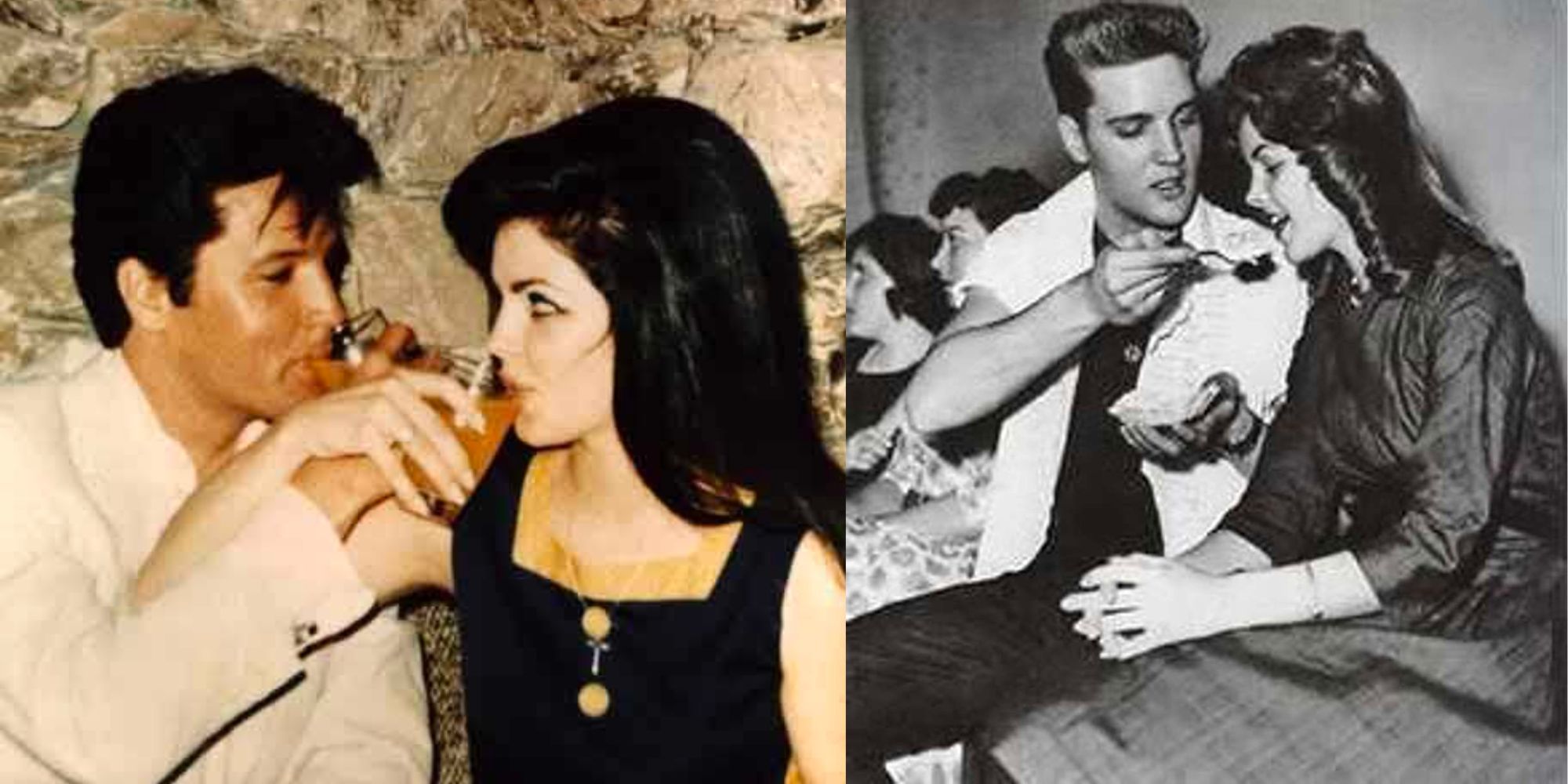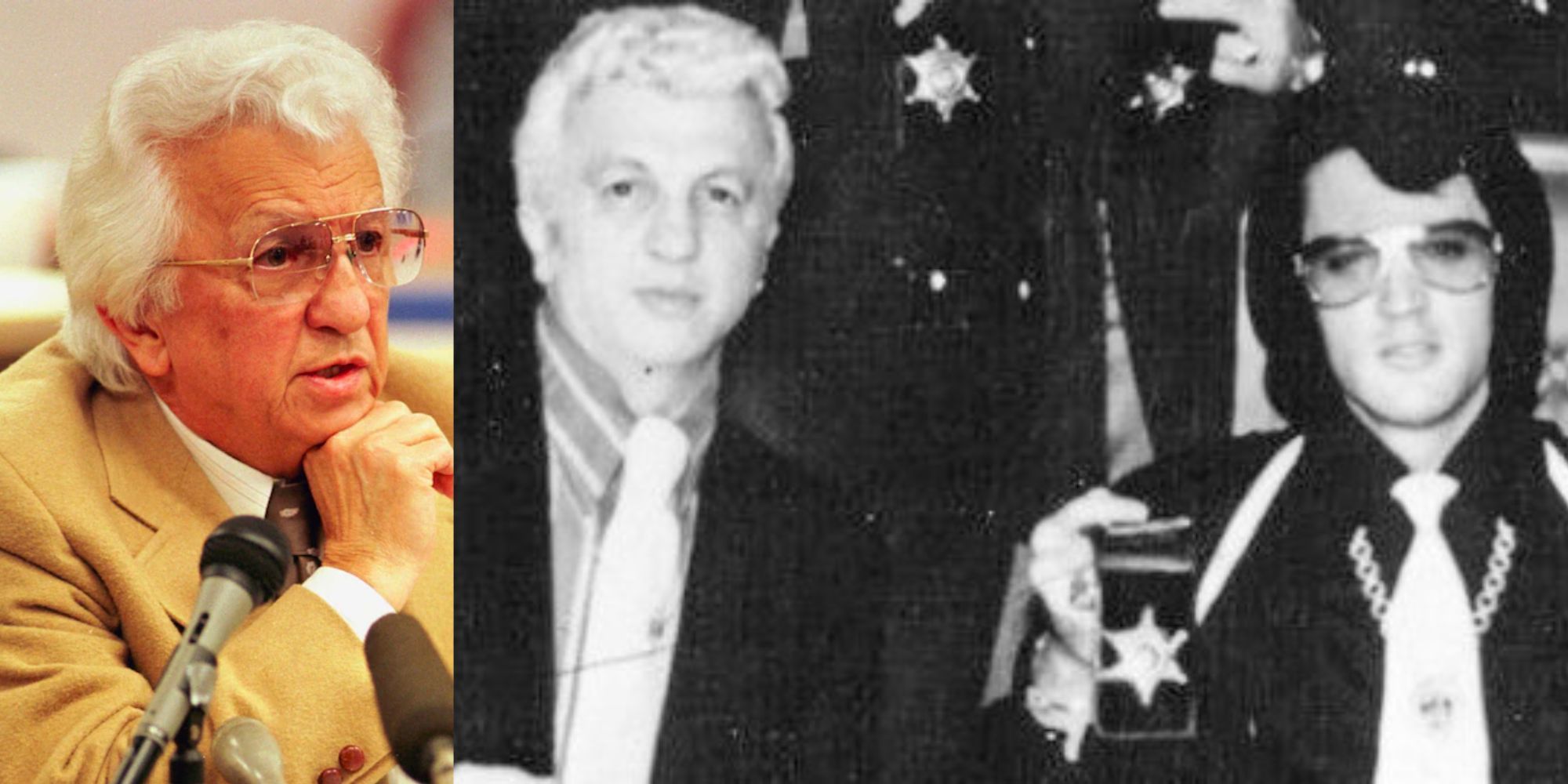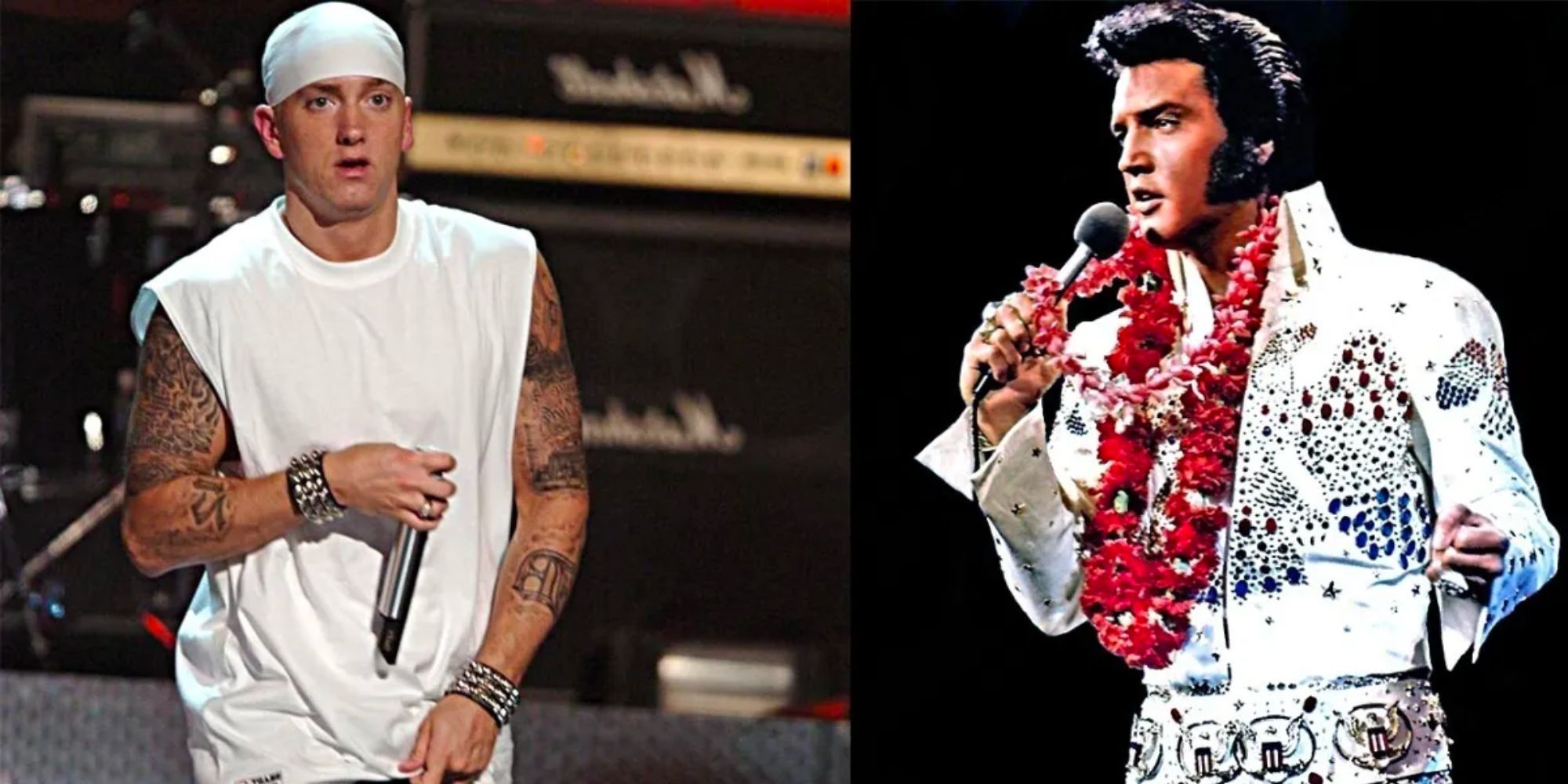With the subtlety of a sledgehammer, Baz Luhrmann's tribute to The King rose from the ashes of a global pandemic and reignited the power of the cinema-going experience. Around the world, masses of Elvis fans of all ages packed into sold-out showings, reminiscent of film premiers pre-2020.
What they were met with will go down in biopic history as one of the greatest — not only for grandeur but for humanizing a legend. Elvis has for too long been the butt of jokes told by those unfamiliar or unbothered by the tragedy of his reality. Hopefully, now through Austin Butler's incredible transformation, and at a time too similar for comfort, people can see Elvis for what he was: a man who helped change the world for the better.
Elvis and his Mother
Gladys Love Smith was born the daughter of a cotton farmer in 1912. When she was 21, she met 17-year-old Vernon Presley, and the two were soon wed. Gladys gave birth to twin boys on January 8, 1935, but heartbreakingly, one of them didn't make it. Gladys was quoted as saying, “when one twin died, the one that lived got all the strength of both.” Domineering by nature, Elvis idolized his strong mother.
Impoverished during the Depression, Vernon Presley served nine months of detention for forgery. Early hardships encouraged Elvis' determination to provide for his mother, and her fear of losing her only child kept the two extraordinarily close and reliant on each other. Their use of pet names led to Elvis's "Mama's Boy" label, but without Gladys's unfiltered love and encouragement, Elvis would not have had the courage to defy the day's restrictions.
Who Were the "Memphis Mafia"?
The group of Elvis' most trusted cohorts consisted of family and school friends: Junior and Gene Smith, Sonny and Red West (played by Mike Bingaman and Christian McCarty), Billy Smith (played by Charles Grounds), Charlie Hodge (played by David Gannon), Marty Lacker, David Hebler, Joe Esposito and others who later joined the payroll. Smith was the only original member still with Elvis upon his death in 1979. The group often received lavish gifts in lieu of pay, such as cars and homes, and would travel with Elvis wherever he went, enjoying the party lifestyle.
While Colonel Tom Parker is the clear "villain" in Luhrmann's story, Lisa Marie Presley has publicly blamed her father's downward spiral on the Memphis Mafia members who enabled his addiction; namely, Marty Lacker and Sonny and Red West, among others. Shortly before his death, Elvis was made aware of a tell-all book that the Wests and David Hebler were about to publish. The trio and other members have continued to give interviews, write books and appear in documentaries, divulging details about the extremely private late singer's life. "His dignity was one of the most important things to him, and you are trying to take it away," Lisa Marie fumed following the release of E! True Hollywood Story: The Last Days of Elvis, in which many of them had appeared.
Elvis and His Relationship with Black Music
While much debate has occurred over Elvis' deserving of his fame, it was the singer himself who most often refused claims that he was in any way a pioneer and referred to Fats Domino as the real "King." In a 1957 issue of Jets magazine, Elvis went on to state: "...rock ’n’ roll was here a long time before I came along... Let’s face it: I can’t sing it like Fats Domino can." Growing up poor in the south exposed Elvis to hardship and fear, and in attending sanctified meetings in African American churches, he found hope in gospel music. As he grew, Elvis was a regular visitor to Beale Street, the home of blues music. Unbothered by his unusual presence, underaged black teens snooped through club windows and browsed in record stores alongside him. He, like them, just loved the music.
At a time when white artists frequently covered Black songs and claimed ownership, Elvis tried to emulate and honor the style and flair he adored, which shocked white audiences to their core, and he didn't care. Making his feelings about segregation laws known, Elvis attended a designated "colored night" at the Memphis Fairgrounds in 1956 and, a year later, performed alongside his heroes B.B. King, Ray Charles, and Rufus Thomas at the Black radio station WDIA's annual fund-raiser for "Needy Children." Long-time friend Little Richard commented, "I thank the Lord for sending Elvis to open that door, so I could walk down the road," having suffered significant financial loss from his songs being rerecorded without credit, Richard appreciated the power created in popularizing interracial rock and roll, due primarily to Elvis Presley's respect for its Black roots.
The Real Colonel Tom Parker
As much a crook in real life as he appeared on-screen, Colonel Tom Parker (portrayed by Tom Hanks) was born Andreas Cornelis (Dries) van Kuijk in the Netherlands in 1909. At age 19, he arrived in the United States and found work at a carnival before enlisting in the U.S. Army. He adopted the name of the officer who interviewed him, Tom Parker, and served two years between Atlanta's basic training base and Hawaii. He re-enlisted but, when stationed in Miami, went AWOL and was charged with desertion. Parker then went on to build a valuable list of contacts while touring as a carnival worker. His transition into musical promotion occurred when he boosted the dwindling career of Gene Austin. In 1955 and growing tired of small-time musicians, Parker, now an honorary Colonel thanks to Jimmie Davis, sought out the new "next big thing": Elvis Presley.
Consumed by gambling debts to the Hilton Las Vegas, Parker focussed on convincing Elvis to take residency at the hotel. When his misconduct finally came to light, Parker's claim that the Presleys owed him $2 million to end their contract, knowing that they did not have this, was the deed that kept a heartbroken and increasingly unwell Elvis trapped as the Hilton's show pony until his death. Despite back and forth lawsuits, Priscilla Presley speaks well of the Colonel and insists Elvis was happy with the arrangements as he wouldn't be where he was without him.
Priscilla and Elvis
While stationed in Germany in 1959, a party was thrown at Elvis' rented residences and in attendance was a lively fourteen-year-old named Priscilla Beaulieu. The two bonded over their love of music and talked for hours about their often lonely lives, with Elvis allegedly regressing into an awkward teenager in her tenacious presence, later stating she reminded him a lot of his mother. Priscilla's family had relocated from Texas when her stepfather, a United States Air Force officer, was transferred to Wiesbaden, West Germany. The pair grew close until Elvis' discharge in 1960.
Priscilla moved permanently to Memphis in 1963. Unfortunately, during this time, hard-partying Elvis was almost always stationed in Hollywood and had frequent affairs with his costars while Priscilla was living at Graceland. Although he initially denied the rumors when confronted, Priscilla was no fool and soon visited Elvis onset regularly. They grew close again during this time, and he proposed in 1966 and, by all accounts, remained chaste until marriage. The pair drifted again when the '68 Comeback Special led to constant touring and a Vegas residency. Priscilla remained in Graceland with Lisa Marie. Eventually, Priscilla began an affair with Mike Stone, which led to her filing for divorce from Elvis. The pair left the courthouse hand in hand and maintained a close bond while co-parenting until he died in 1979.
Dr. Nick, and How Did Elvis Really Die?
While a heart attack is the official cause of death, in circumstances that are eerily similar to the deaths of Prince, Michael Jackson, and Heath Ledger, Elvis was found to have very high levels of the opiates Dilaudid, Percodan, Demerol, and codeine — as well as Quaaludes, in his system at the time. Elvis’ personal physician, George Nichopoulos (aka Dr. Nick), first began treating him for "Saddle Pain" in 1967. In a hearing before the Tennessee Board of Health, Dr. Nick testified that he gave in to all of Elvis’s prescription requests because he wanted to keep the singer from seeking out these drugs “on the street.”
The Board found the doctor "acting in his patient's best interests," and he was acquitted. In 1980, he was indicted again for overprescribing Elvis and Jerry Lee Lewis and acquitted. It wasn't until 1995 that Nichopoulos finally had his license revoked. He claimed that, at times, some of the pills he gave Elvis were placebo, but that his patient would realize and enlist a new physician for the drugs. It's hard to say how hard anyone around Elvis tried to help when he was still performing on stage every night, increasingly incoherent, bloated, and unwell in the final few years of his life. Instead, people laughed at what the great showman was becoming. Elvis' last years were tragic, and history would repeat itself with other artists.
The Significance of the Soundtrack
As always in a Baz Luhrmann, it appears as much thought went into the soundtrack as the production. Most importantly, Black artists are at the forefront. Global stars like Doja Cat appear next to relative unknowns like Shonka Dukureh. Jacksonville rapper Nardo Wick is listed beside country royalty Kacey Musgraves. The carefully curated fusion of pop, rock, country, and rap is something the late, great Elvis would have loved to hear to help tell his story.
A song of great significance is the credits track created by CeeLo Green and Eminem titled "The King and I." While this isn't the first time the rapper has compared himself to Elvis, the stark difference in tone and understanding is evident. In his single "Without Me," he says, "No I'm not the first king of controversy, I am the worst thing since Elvis Presley / To do Black music so selfishly / and used it to get myself wealthy." The tongue-in-cheek jab references white artists entering Black spaces and getting disproportionately wealthy and famous, intentionally or otherwise: Eminem calls back to his space in the world of hip-hop and reflects on the darker side of being called a King, noting that his lack of self-esteem led to drug addiction and depression.

